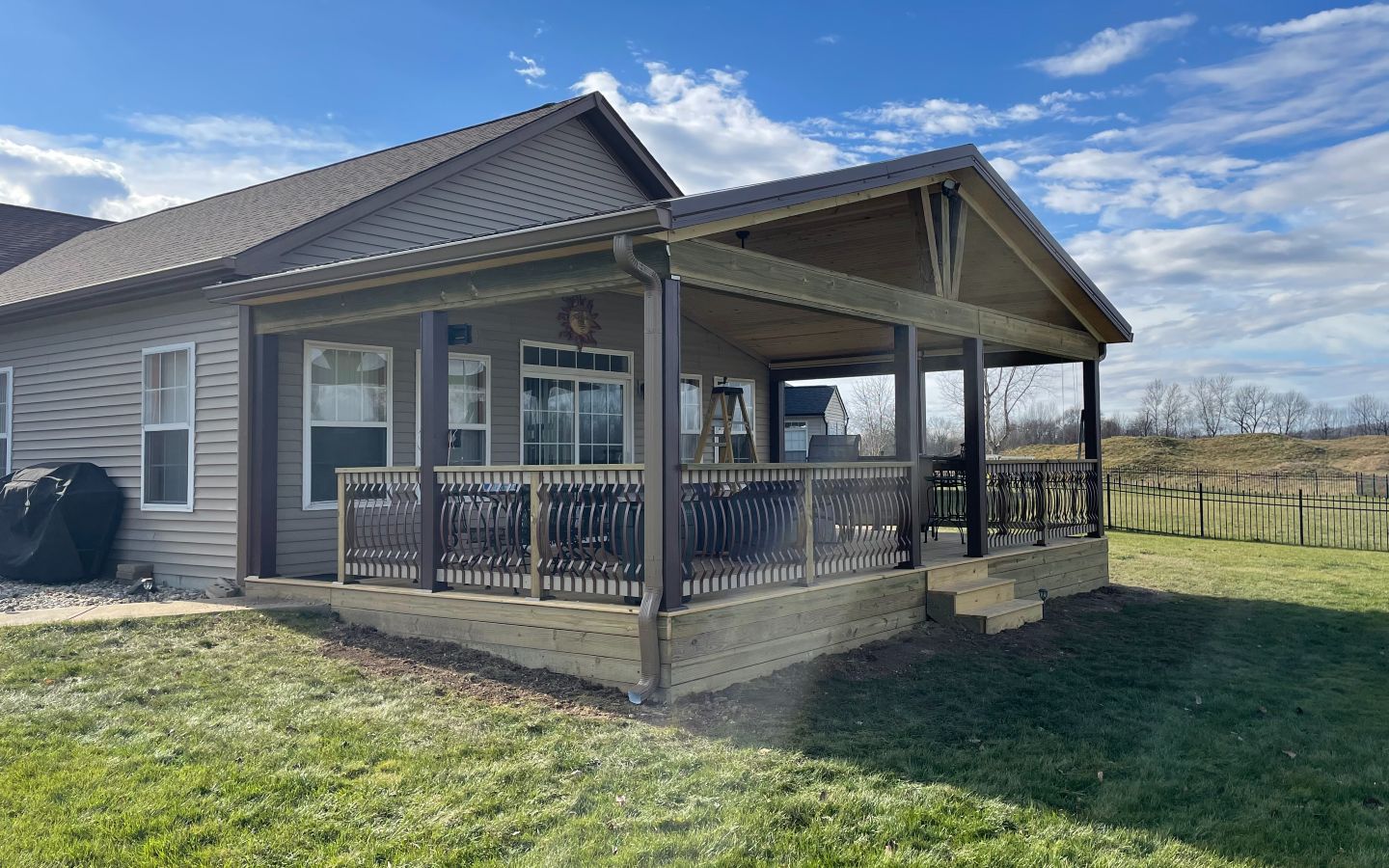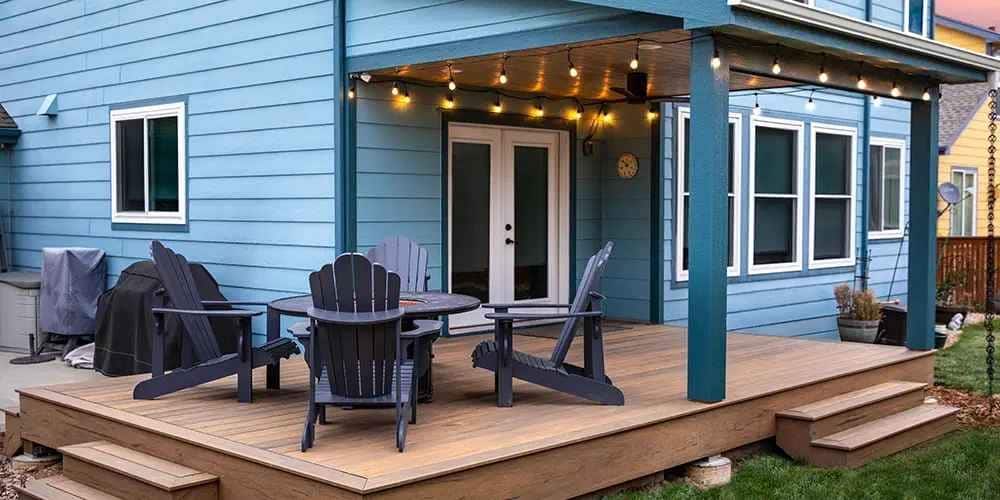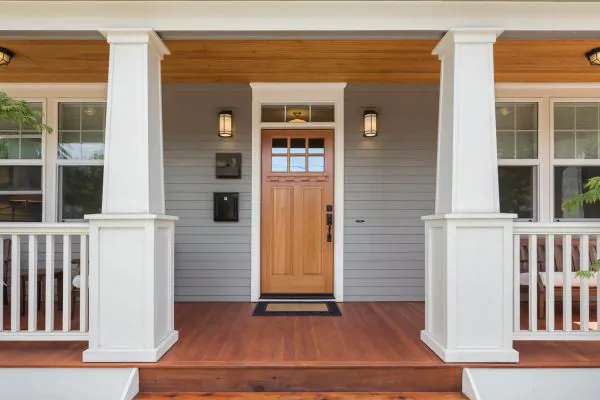Checking Out Numerous Types and Advantages of Deck: A Comprehensive Guide
The outside deck is greater than just an expansion of one's living space; it's a testimony to personal design, a place for social gatherings, and a shelter to loosen up. The selection of decking material substantially affects these facets, with options varying from the timeless attraction of wood to the usefulness of composite, and the sturdiness of light weight aluminum. Recognizing the nuances of these materials is important, so allow's start our expedition, one deck type at once.
Comprehending the Fundamentals of Outdoor Decking Material
Outdoor decking product functions as the backbone of any kind of deck job, determining the overall aesthetic appeals, resilience, and functionality of the last product. The marketplace uses a large variety of products, each with one-of-a-kind features fit to different layout choices and environmental problems. The choice includes natural timber, composite, plastic, aluminium, and even concrete. Timber, being the traditional selection, provides a timeless, timeless allure. Compound, a combination of wood and plastic, offers wood-like appearances with less upkeep. Plastic and aluminium offer contemporary, minimalistic options, while concrete is favored for its unparalleled resilience. The selection of product considerably influences the deck's lifespan, upkeep demands, and resistance to components. Comprehending the essentials of decking material is important for an effective deck job.
Benefits and Disadvantages of Timber Decks
In reviewing deck types, comprehending the advantages and disadvantages of timber decks comes to be crucial. This entails considering aspects such as the kind of timber selected and its influence on the deck's efficiency. The succeeding conversation will explore these factors in information to supply a detailed view of the downsides and advantages connected with wood decks.

Wood Deck: Cons & pros
The charm of timber decks can not be overstated. They radiate an ageless appeal and cozy aesthetic that lots of property owners discover irresistible. This natural product is functional, allowing for a variety of layout opportunities, and can provide an excellent roi.
However, wood decks additionally come with certain drawbacks. They require consistent upkeep, consisting of regular cleansing, discoloration or paint, and possible replacement of rotten or warped boards. Wood is likewise at risk to damage from insects and extreme climate condition. Its longevity can be much less than various other decking materials, particularly if not properly looked after.
Picking Your Wood Type

Exploring the Advantages of Compound Decking
Turning focus to composite outdoor decking, it provides unique advantages. Its toughness outmatches traditional timber in harsh weather condition problems, lowering the need for frequent maintenance. In addition, it gives a pleasing aesthetic allure with variable design options.
Compound Decking Resilience Benefits
In spite of the variety of outdoor decking options available in the market, composite outdoor decking stands out for its durability. This type of decking, made from a blend of timber and plastic, gives a durable, lasting platform resistant to aspects that typically break down other materials. In recap, the durability advantages of composite decking offer a lasting, economical option for outside living spaces.
Upkeep of Composite Decks
In enhancement to longevity, composite outdoor decking boasts a significant advantage in regards to maintenance. Unlike standard timber decks, composite decks are not susceptible to rot, warp, or insect damages, hence dramatically decreasing the requirement for normal fixings and substitutes. They likewise call for no sanding, painting, or discoloration, making them a time-saving choice for property owners. Cleansing a composite deck is a simple task, typically just needing a sweep or a mild laundry with a light soap and water. The low-maintenance nature of composite decks not just provides simplicity of upkeep however additionally adds to their lasting cost-effectiveness. This sensible advantage, combined with the material's integral resistance to weathering and degeneration, makes my response composite outdoor decking a favored selection for lots of individuals seeking a resilient and problem-free outdoor decking remedy.
Visual Appeal and Variability

The Increasing Appeal of Light Weight Aluminum Decks: Why Select Them?
As the demand for resilient and low-maintenance decking rises, aluminum decks are significantly ending up being the best option for several property owners and building contractors. These decks, made from a light-weight yet sturdy steel, offer a number of advantages over traditional wood or composite decks. To start, light weight aluminum is naturally resistant to the elements, meaning it will not warp, crack, or discolor gradually. This makes it an affordable choice in the long run. Additionally, its non-porous surface protects against the development of mold and mildews, insects, or fungis, making sure a tidy and healthy exterior space. Aluminum decks are additionally eco-friendly, as they are usually made from recycled materials and can be recycled again at the end of their life-span. Lastly, their contemporary and streamlined aesthetic charm fits well into modern home layouts.
Upkeep Tips for Different Decking Materials
Regardless of the selection of decking products offered on the marketplace, each comes with its very own set of upkeep demands to ensure longevity and aesthetic allure. For example, natural wood decks need normal discoloring or securing to stop climate damages, while composite decks require regular cleaning with soap and water to remove discolorations and debris. On the other hand, light weight aluminum decks require less upkeep, just requiring periodic rinsing with water to maintain them tidy. Treated wood decks, although immune to rot and insects, also require constant securing to keep moisture out. Therefore, understanding these upkeep requires is vital for deck owners to maximize their financial investment and keep their decks looking their finest for many years ahead.
Variables to Think About When Picking Your Deck Type
What aspects should one think about when selecting the sort of deck to mount? The initial facet to take a look at this is the climate. Specific products are much more sturdy in specific weather. For instance, composite decks withstand moisture well, making them optimal for damp or rainy regions. The property owner's way of living ought to likewise influence the decision. If they appreciate exterior amusing, they may choose for a roomy, durable hardwood deck. Price is another significant factor. While some might want a glamorous, exotic timber deck, budget plan restraints may require a much more cost-effective selection like pressure-treated wood. Finally, upkeep requirements need to be reviewed. Decks calling for much less upkeep, like plastic, can be helpful for hectic home owners. Thus, climate, lifestyle, maintenance, and cost are vital considerations in deck selection.
Final thought
In final thought, decking products considerably vary, each offering unique advantages that deal with different property owner needs. Wood decks enchant with all-natural beauty, while composite and light weight aluminum selections supply resilience and low upkeep. Local Deck Builders Near Me. The ideal choice depends on specific lifestyle, environment, and budget. For that reason, prior to committing to a specific deck kind, property owners need to meticulously think about the advantages, downsides, and upkeep needs of each material.
In assessing deck kinds, understanding the pros and disadvantages of timber decks becomes vital.Despite the huge selection of decking alternatives available in the market, composite outdoor decking stands out for its longevity. Unlike typical timber decks, composite decks are not prone to rot, warp, or insect damage, therefore considerably reducing the demand for normal repair work and replacements. These decks, made from a light-weight yet durable metal, offer several advantages over typical timber or composite decks. Natural wood decks require regular discoloring or securing to avoid weather condition damage, while composite decks need regular cleaning with soap and water to get rid of discolorations and particles.